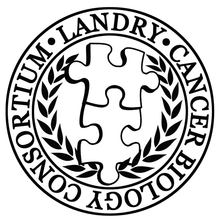Zhe Li

The broad interest of Li laboratory is stem cells and cancer. In particular, the lab is interested in elucidating how cells of origin contribute to the cancer phenotype, and what is the molecular and cellular basis leading to formation of cancer stem cells (CSCs, also known as tumor-initiating cells, or tumor-propagating cells) from normal target cells of cancer. We study these by applying concepts and tools from stem cell biology and developmental biology, and by using a combination of mouse genetics, biochemistry, and genomic approaches. The long-term goal is to develop novel approaches to treat and/or to prevent cancer.
Cells of origin in breast cancer: We are using several complementary approaches in genetically modified mice, including Cre-lox genetic marking and in vivo cell fate mapping, as well as cell sorting coupled with fat pad transplantation, to study how cells of origin contribute to the heterogeneity of breast cancer. By applying lineage-tracing approaches, we follow progression of normal cells (i.e., cells of origin) to premalignant cells, and eventually to cancer cells. By flow cytometry and genomic approaches, we aim to identify and to validate key mutations and deregulated pathways at different stages of cancer progression, leading to the formation of CSCs, in animal models.
ERG and ETV1 in stem cells and cancer: ERG and ETV1 are ETS family transcription factors playing central roles in both normal development (e.g., ERG in hematopoietic stem cells) and disease, particularly in prostate cancer. They are overexpressed in >50% of human prostate cancer cases due to TMPRSS2-ETS gene fusions. We are using knockin mouse models to study roles of ERG and ETV1 in prostate tumorigenesis and to identify their cooperating oncogenic pathways. We are also using conditional approaches to study the role of Erg in normal and malignant stem cells in mice.
Developmental stage-specific programs in leukemogenesis: Down syndrome acute megakaryoblastic leukemia (DS-AMKL) is a unique pediatric leukemia characterized by fetal cell origin, trisomy 21, and GATA1 mutations. We defined a developmental stage-specific program that explains the strict restriction of DS-AMKL to children. This includes overactive IGF/IGF1R signaling and overexpression of a microRNA gene on human chromosome 21, miR-125b-2. Currently, we are investigating whether fetal and adult stages of hematopoiesis have different dependencies on IGF/IGF1R signaling and whether such difference is utilized by certain hematopoietic cells to drive their leukemic transformation. We also study the role of miR-125b-2 in leukemogenesis.
Cells of origin and cancer stem cells in other epithelial cancer types: We have developed a novel lineage-tracing approach based on cell type-specific Cre-expressing adenoviruses to study mammary stem and progenitor cells and cellular origin of breast cancer. By utilizing this novel approach, as well as the classic transgenic mouse-based pulse-chase CreER/lox lineage-tracing system, we aim to 1) elucidate cells of origin in other types of epithelial cancers (e.g., prostate, ovarian); 2) characterize cancer stem cells by a pathway-based lineage tracing and clonal analysis approach (e.g., breast or oral cancer).
Contact Information
New Research Building, Room 458E
77 Avenue Louis Pasteur
Boston, MA 02115

